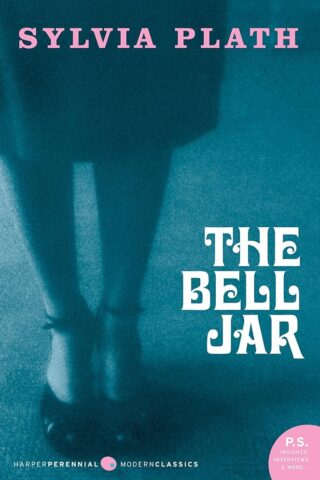“The bell jar” A book that has left a claw mark on my soul

Reading Sylvia Plath’s “The Bell Jar” was an experience that left a profound and lasting impact on me, as though the book left a claw mark on my soul. The novel, which details the descent of Esther Greenwood into mental illness, resonated deeply with me, offering a raw and unflinching portrayal of a young woman’s struggle with identity, expectations, and mental health.
Plath’s writing is both beautiful and harrowing, and her ability to articulate the complexities of depression is unparalleled. One of the lines that struck me the most was, “I took a deep breath and listened to the old brag of my heart. I am, I am, I am.” This repetition captures the relentless battle for self-affirmation in the face of overwhelming despair, a sentiment that felt incredibly personal and real to me.
The book’s exploration of societal pressures and the suffocating expectations placed on women in the 1950s also resonated with me. Esther’s struggle to reconcile her own desires with societal norms is poignantly depicted, particularly in the line, “If you expect nothing from somebody you are never disappointed.” This sentiment of disillusionment and the search for authenticity in a conformist world is a theme that still feels relevant today.
One of the most impactful metaphors in the book is the fig tree analogy. Esther imagines her life as a fig tree, with each fig representing a different potential future. She feels paralyzed by the fear of making the wrong choice, saying, “I saw myself sitting in the crotch of this fig tree, starving to death, just because I couldn’t make up my mind which of the figs I would choose.” This analogy profoundly affected me, reflecting the overwhelming pressure of decision-making and the fear of missed opportunities. It mirrored my own anxieties about the future, making me realize the importance of making choices and embracing the paths they lead to, rather than being immobilized by indecision.
“The Bell Jar” not only provided a mirror to my own feelings of isolation and existential angst but also offered a sense of solidarity. Plath’s candid portrayal of mental illness demystified and destigmatized it, making me feel less alone in my struggles. The book’s honest and vulnerable narrative gave me a language to express feelings I had struggled to articulate.
However, it’s important to approach this book with caution. “The Bell Jar” deals with intense themes of depression, suicide, and mental illness. Therefore, checking trigger warnings before reading is crucial to ensure that you’re prepared for its content. The impact of “The Bell Jar” is enduring, its claw marks a reminder of the depths of human emotion and the importance of confronting our inner demons. Sylvia Plath’s novel is more than just a story; it is a powerful testament to the complexities of the human psyche and the relentless pursuit of self-understanding.


